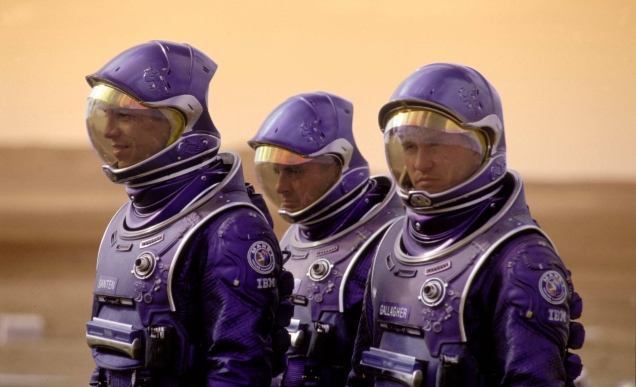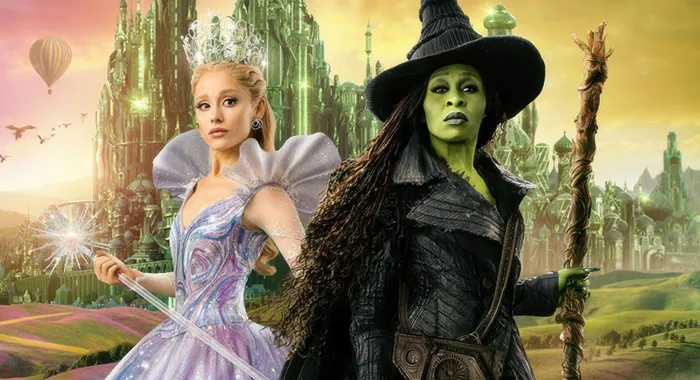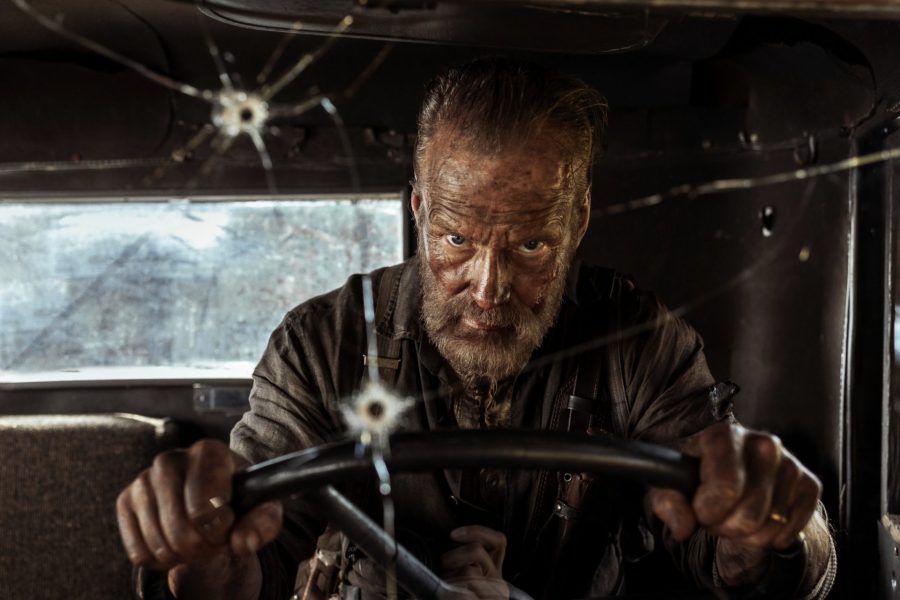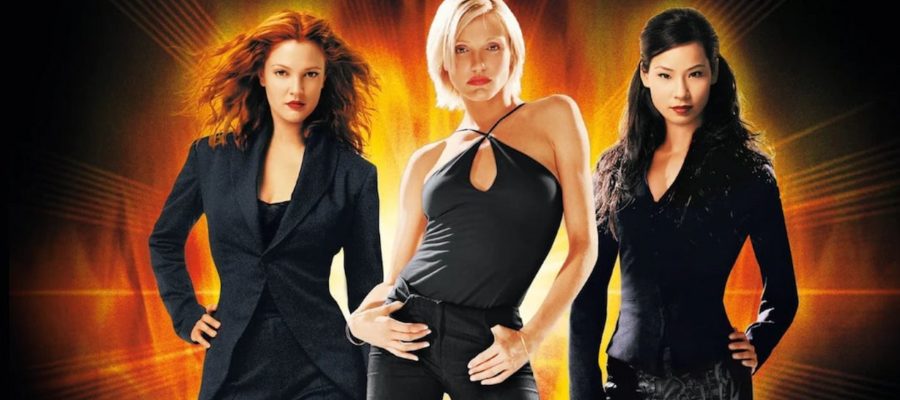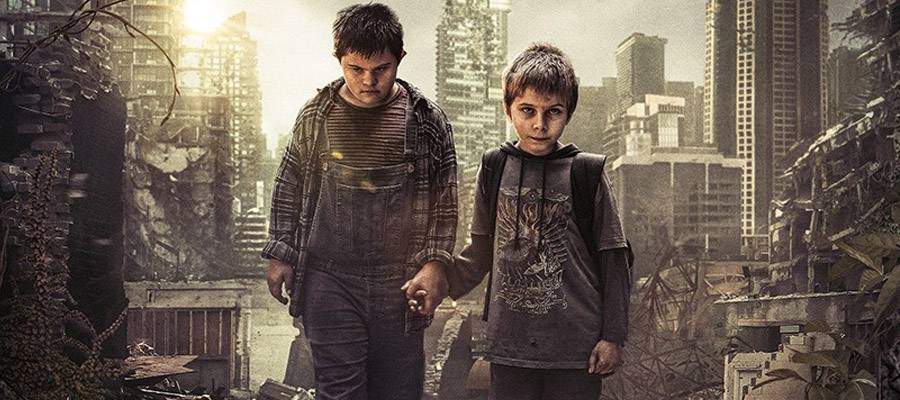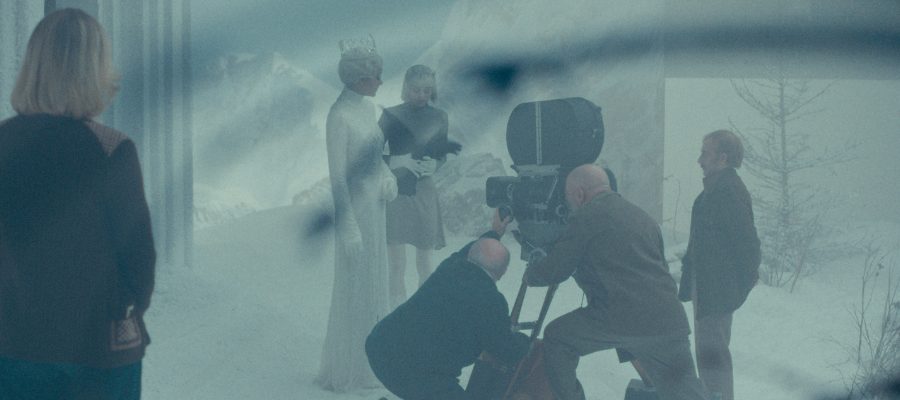Islands is a smooth and arresting assimilation of genres from writer-director Jan-Ole Gerster. Having made a splash with his 2019 German-language drama Lara, Gerster now switches gears to the sun-scorched Canary Islands. Sam Riley stars as a one-time tennis star in the making who has wound up coaching tourists at a generic hotel resort in Fuerteventura. However, when his character Tom becomes embroiled in the machinations of a seemingly ordinary British family, his life begins to fall apart. Or does it? Might this introverted loner instead be about to find the purpose that's long eluded him?
Co-starring Stacey Martin and Jack Farthing, Islands has received critical acclaim for its noirish atmosphere and performances. As the film arrives in UK cinemas, FILMHOUNDS caught up with Gerster to discuss his inspirations for the film and what it took to coax a career-best performance from Riley.
Islands starts off as a depiction of one man's existence on the Canary Islands, and then it gradually evolves into something more mysterious. Can you describe the challenges of blending the various genres?
Yeah, it actually started off as a drama. I met a person who was a bit like Sam Riley's character when I was visiting Fuerteventura myself. It was my island of choice; I'd never been there before. It was one of those cold and rainy Berlin winters, and I needed to escape and catch some sunlight. I ended up on Fuerteventura and had this little apartment with a balcony that overlooked a sun-bleached tennis court with a rusty fence. A guy was serving literally thousands of balls to tourists over the net, day in, day out. I was listening to him for two weeks, saying the same things over and over again.
At one point, my imagination clicked, and he became a character who was a bit lost and washed up on this island. On the surface, it seems like he has this perfect little life in paradise while everyone else is sitting in a shitty office or a shitty hotel room. However, this character appeared to have it figured out with daytime drinking and tennis. At that point, the film was not conceived as a mystery in my head. It was going back and forth between Lost in Translation and The Wrestler [laughs]. They were the references I had in mind. Nothing happened with it for a long time because it was simply an idea, a conceit. I have tons of ideas, but they don't usually turn into films.
However, I could never really shake off this encounter or this guy. I was also attracted to the notion of shooting something on this breathtaking island. There is a part of Fuerteventura that is tacky and weird and reliant on all-inclusive mass tourism, driven particularly by the Germans and the Brits. They become brothers and sisters on these islands, drinking and going all shades of red with sunburn. Very often, Sam and I were trying to tell the Germans and the Brits apart, but it was impossible!
Anyway, returning to your question, when I came to turning this thing into a story, I needed the character to be confronted with something. He needs to be activated in terms of realising what's wrong with his life. The idea of confronting him with profound notions of family, responsibility, fatherhood, and so on was potentially very interesting. So, in the process, I had to get rid of [Jack Farthing's character] Dave, the father. The moment Dave was gone, it raised the possibility that a crime might have happened. One thing led to another, and the story revealed itself to me as a mystery. It was a natural process, and the story started to take over.
I love it when that happens in writing. You do everything you can do for the muse to arrive, and the thing starts to speak to you. At one point, I realised I had all the ingredients for a great vacation noir, but maybe more in the territory of French noir films than classic American ones. I never really thought about writing a noir, even though I love the genre. But it became a very enjoyable and even joyful process. The challenges you're referring to lie in finding the right balance between a character-driven drama and a plot-driven crime story. It's a little bit of both.
Through the noir conventions, we see Sam Riley's character, Tom, starting to unravel, which is fascinating. And you've certainly given Sam Riley his best role since he portrayed Ian Curtis in Control. Riley is both a likable and inscrutable actor, so how did you tap into that?
Yeah, I've been promoting this movie, Islands, in several different countries now, and everyone says to me, “Sam Riley, Control, wow, what a performance!” It was his first-ever appearance on the big screen. He came out of nowhere, and some people have wondered what he's done since then. He was in a few indies and in Disney's Maleficent with Angelina Jolie. I think people were sad not to see him in more leading roles. Funnily enough, this also informed Sam's way into his character in Islands. When I first met him, he said, ‘I'm not a great tennis player but I know a thing or two about missed opportunities and the drama of unfulfilled potential.' He had me with that line.
Very often, a director will approach the casting process from all the wrong directions. In the end, it didn't really matter whether Sam could convince me of the character's past tennis career. Instead, he brought all these qualities and additional layers to the role of Tom. In the wrong hands, this character could easily have become a stereotype. He instead led this character into a profound and universal existential crisis. This was the idea all along, but Sam turned out to be the perfect guy to bring it all together. In the film, he never says a word about his emotional life, but we all understand it by just looking at him, right? It's an inner process. Something is going on inside this guy. We never hear him express any thought, any idea, any suspicion, any emotion, really. This is a demonstration of Sam's great talent.
A critical component is the score by Dascha Dauenhauer. It's vital in establishing the tense atmosphere of the film, so can you describe your working collaboration with her?
Well, like most directors, I'm obsessed with music. I listen to a lot of music, and in the editing process. It always turns out tricky to nail it in the end. It was especially tricky in the making of my previous film, Lara. Islands was the first time when I really collaborated with a composer. We sat down and discussed the emotional core of each scene, the themes, and the motifs. I've got no f*****g clue as to how to talk in musical terms and vocabulary, but with Dascha, it was almost like going to therapy. I would lie down on this sofa in her studio while she was pushing buttons and playing keys. I kept remembering the video of Angelo Badalamenti recalling the moment where he and David Lynch came up with Laura Palmer's theme for Twin Peaks [laughs]. That same sort of cathartic experience. That's how Dascha and I worked together. I was talking through the emotional layers of the film, and she translated it into music. It was a beautiful process. She came into post-production at a very late stage, and so we were using a lot of temp music in the editing. I often try to avoid that.
It must be so frustrating for a composer to be confronted with a cut of the film that already has great temp music in it, only to be told, “Right, go and do something better.” It's a tricky moment and a big responsibility when you effectively hand the movie over to a composer. In a film like this, the music is as important as the camerawork and the acting. I couldn't be any happier with the score that Dascha came up with. She's a genius. The score became bigger and more resonant than I expected. It's self-confident and claims its place in the movie. It serves the suspense and the genre elements, but also gives voice to the inner lives of the characters. Somehow, marimbas ended up being a big thing in the film. Every time Sam's character, Tom, puts another piece of the puzzle together, we hear this [imitates marimba sound]. I love it! I'm sure we will hear a lot more from Dascha on an international level.
As a Brit, I have a great affinity for Spain, and you effectively capture the dead heat of the country. How did you conjure this tactile sense of a sweltering, all-encompassing Spanish atmosphere?
From a cinematic point of view, these islands offer so much. I just embraced it. Ironically, there is a lot of filming happening on Fuerteventura, but it's often used as a stand-in for other locations. Maybe Pakistan or something distant desert planet. Ridley Scott used the island to depict Egypt in his film Exodus: Gods and Kings. I couldn't recall a single film that captured Fuerteventura for what it really is. There's real beauty in the contrast between these harsh volcanic landscapes and the piercing blue skies and ocean. In the middle of it all are these weird hotels with tourists turned as red as lobsters, drinking beer in the afternoon.
When we were scouting locations, we went to this one hotel that has a mural in the lobby showing the first arrival of the Spanish conquistadores on the island. It's perhaps a weird thing to put in a hotel lobby [laughs]. It was really showing the first tourists, or invaders. The mural ended up in the film. It's in this little montage that the earthquake is going on. It had to be in the film. There was no other place to put it. I was obsessed with having this thing in the movie. It wasn't love at first sight between me and Fuerteventura. When I first visited, I tried to stay away from the areas of mass tourism, and the island really unveiled its beauty to me. I was on some lost highway somewhere in the mountains, and I pulled over. Around me, there was this 360-degree vantage point with no signs of life whatsoever. This is what I imagined it must have looked like millions of years ago. At that point, the island really started to fascinate me as a place to make a film.
Islands is in cinemas now



